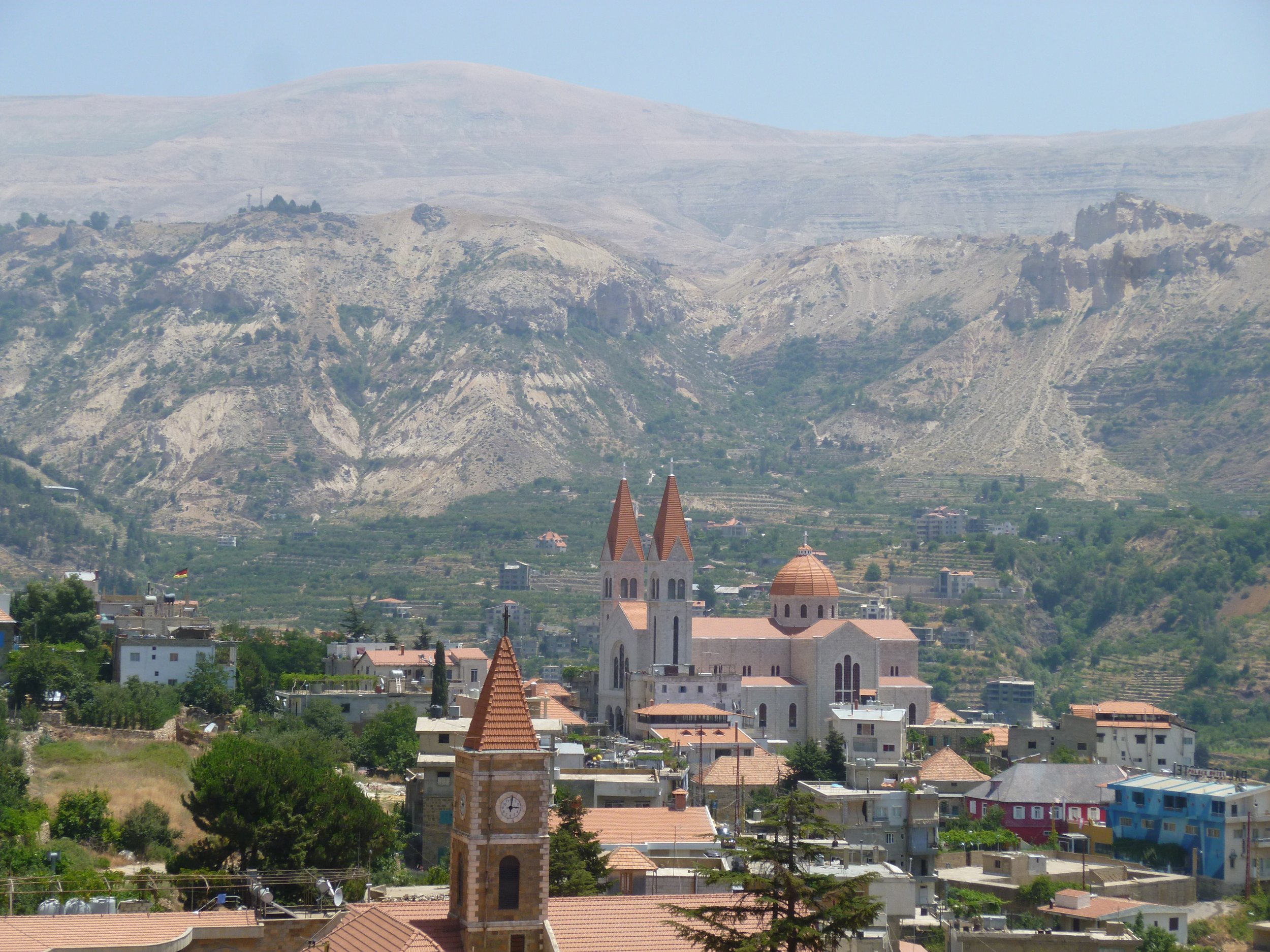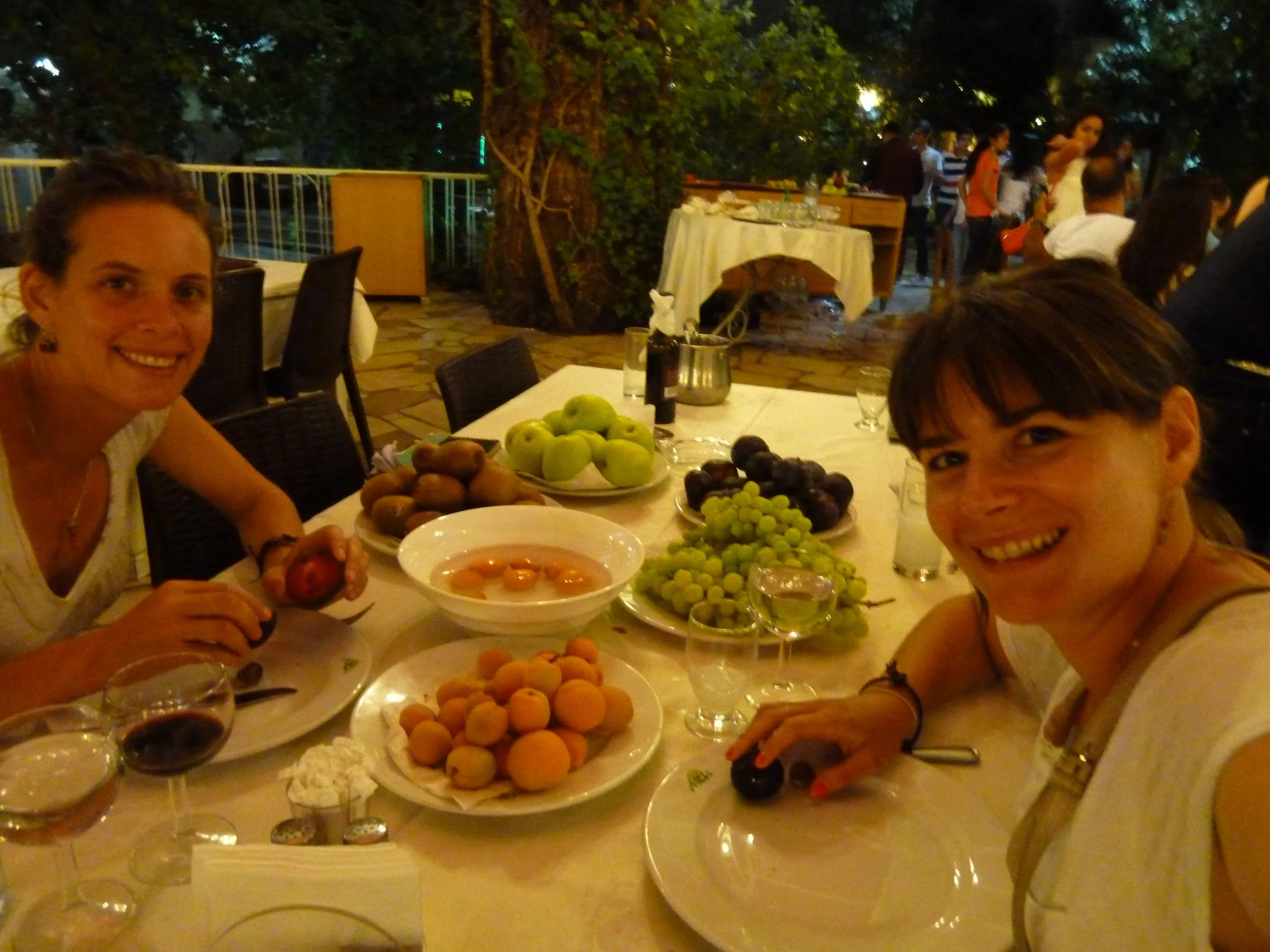Traditions of Lebanon
Lebanon was one of my favourite countries I visited during the Shifting Sands trip in 2014. Beirut was a beautiful, frenetic city, full of the essence of life in the Mediterranean. I feel so grateful to all the people I met on this trip, who opened my eyes to the beauty of their land and these enduring traditions of Lebanon:
1. Creativity in the face of conflict
We didn't really see any Lebanese artwork or artists per se, but trips like this are so inspiring because we absorbed the artistry and creativity in the way people live. There have been a lot of economic issues because of everything that's happened in the region - Lebanon is constantly in a state of change.
There's so much construction and reconstruction because of all the turmoil and wars - with Israel and with others in the past. Yes, there is a lot of money in parts of Lebanon. And having studied architecture, it was a little bit heartbreaking to see these absolutely beautiful decorative villas being demolished to make way for skyscrapers.
But I loved seeing how regular people are so inventive with what they have, and they create things out of nothing. There's a pervasive sense of creative abundance - anything's possible even with so little! That was really inspiring to see.
2. Generosity
The generosity that we encountered everywhere in Lebanon was beyond what anyone would experience in the UK, I’m ashamed to admit. We experienced incredible generosity and a warm sense of human connection in every single country on the Shifting Sands route, apart from perhaps Israel.
There is some unrest or resentment about how regional conflicts overwhelm their incredibly tiny country. They’ve taken in so many refugees from surrounding countries, notably Palestine and Syria. With 18 distinct religions and sects in Lebanon, there’s a lot of distrust, suspicion, and fear of the unknown between them. And quite often they live separately, with towns outside the capital often having a majority of one religion or sect.
One group would warn us to be careful of the next town because of its different religious denomination. Then we’d reach the next town and they'd be shocked we’d passed through the previous town without being hurt or anything.
But every single place we went to, people were so generous and welcoming and looked after us and helped us. We had many, many car issues on that journey, a lot of it outside of Beirut - most of our time was taken up with brake problems on the car and breaking down in lots of very crazy places.
We had soldiers helping us. We had random shopkeepers giving us free pizzas. We had a Lebanese family who basically gave us refuge for the night when our car had broken down. This constant generosity in everything is one of my biggest memories of Lebanon.
3. Fresh Food
One of the biggest Lebanese traditions is the food! The food is absolutely wonderful, with a fusion of food influences from Mediterranean cultures, notably Armenia. The freshness of the fruits and vegetables is prioritized and celebrated.
I loved that at restaurants, there's always a plate of fresh basil or salad, just washed, and set out with radishes or other things as a little snack before your meal. And then at the end of the meal, you get a big bowl of fruit - whole fruits that you can wash yourself and eat.
There's just something about the freshness of the produce that is so directly linked to the landscape and the land. I really felt how much the Lebanese are grounded in the place they live. They're connected to the sea, to the seafoods, and to the land, where because of the climate, so much beautiful produce can be grown in abundance.
We went to a restaurant in Beirut called Tawlet. Every day they invite a new chef from a different part of Lebanon to come and cook their specialty food. The chefs are women - mothers, grandmothers, regular women - so not Michelin chefs. They're people from various regions with their own distinct way of making certain dishes. You can feel the love and pride oozing out of every dish.
I loved seeing how they honoured tradition and family values, eating as a family. They believe and show how food brings people together.
4. Comradery and connection
We talked to a friend who’s half Lebanese, half English, but chooses to live in Lebanon. One thing I found really poignant - she shared that she went to study in London and that she’s never felt so lonely. People just don't speak to each other in London. Whereas she said, in Lebanon, she can be walking down the street or get lost, get into a taxi and have a deep, connected conversation with the driver. People look out for each other, you are never alone.
There's a community and network of people who always have each other's back and take care of each other. That's something she noticed is missing in the UK. And we definitely did feel a compelling sense of camaraderie and connection when we were in Lebanon. For me, it almost revealed on a deeper level what it is to be human, to be in a connected community, and to live together with limited resources.
If you ever have a chance to travel, I encourage you to take it! You will learn so much about how you see the world and connect with people, and experience new and beautiful ways to face life.
To find artwork inspired by my exposure to new lands, you can visit www.anne-laurecarruth.com





